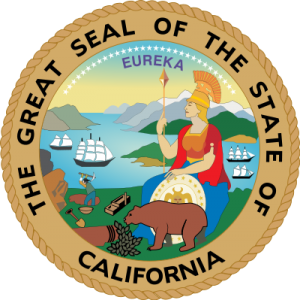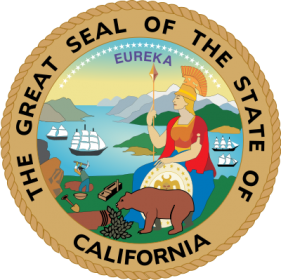Hardline Tribal Coalition Retracts Neutrality on AB 431, California Online Poker Bill
As members of the California State Assembly Appropriations Committee debated and voted today (in private session on the vote; results to be released tomorrow) on AB 431, one of several California online-poker bills currently being considered, news surfaced that the hardline “Cali 7” coalition which has roadblocked the process in recent years has retracted its neutrality on the shell bill.
 AB 431, only the second online-poker bill ever to advance from California’s requisite “GO Committee” initial hearing process, faces difficult sledding in the face of the renewed opposition. That opposition came in the form of a return to a “no” position on the bill from the hardline tribal group, which is led by the Pechanga and Agua Caliente tribal nations.
AB 431, only the second online-poker bill ever to advance from California’s requisite “GO Committee” initial hearing process, faces difficult sledding in the face of the renewed opposition. That opposition came in the form of a return to a “no” position on the bill from the hardline tribal group, which is led by the Pechanga and Agua Caliente tribal nations.
Chris Krafcik at Gambling Compliance was the first of several media sources to obtain and publish the text of two letters sent by separate and contrasting groups regarding the Appropriations Committee’s consideration of AB 431. The hardline group’s letter to Appropriations Chairman Jimmy Gomez included this core text:
Our tribal governments write to oppose moving AB 431 (Gray) out of Appropriations Committee at this time.
Some of our tribal governments moved to “neutral” or “no position” before the bill was heard in the Assembly G.O. Committee on April 27 out of respect for Chairman Gray’s leadership and the prior assurance that consensus would be sought before moving forward. Continuing to pass this measure as a spot bill does not advance a state regulatory structure for iPoker. The issues that divide stakeholders remain unresolved. Moving the bill at this time would be directly counterproductive to any internet poker effort, which we know is not the goal of the author, who has told us he desires to be the neutral party bringing stakeholders together on this issue, if indeed that is possible.
Legalization of iPoker is a significant public policy consideration with long-term implications for the State of California, its citizens, and our tribal governments. Although stakeholders have made progress in building consensus on some issues, important disagreements remain, including eligibility for licensure and suitability standards that instill public trust and confidence in the integrity of the licensees.
While we appreciate the author’s desire to move this legislation forward to meet deadlines, we note that a comprehensive iPoker bill would have significant fiscal impacts and impose new taxes that would be subject to a two-thirds vote requirement. Thus, the bill can accommodate an urgency clause so that committee deadlines would not apply. Chairman Gray will always have the ability to bring forward a bill with that urgency clause, to try to put together a final deal. For these reasons, we urge you to keep this vehicle in your committee.
The bill was signed by all of the Cali 7 tribes — the Agua Caliente Band of Cahuilla Indians, the Barona Band of Mission Indians, the Lytton Band of Pomo Indians, the Pechanga Band of Luiseño Indians, the Viejas Band of Kumeyaay Indians, the Yocha Dehe Wintun Nation, and the Sycuan Band of the Kumeyaay Nation. Two other California tribes joined as signatories to this letter, the Habematolel Pomo of Upper Lake and the Table Mountain Rancheria.
The total of nine hardline tribal nations comprising the anti-AB 431 sentiment represents a powerful group of the state’s most lucrative tribal-casino owners, though it is only a small minority of the state’s total tribal nation and tribal casino counts. California houses 102 federally recognized tribes, and is currently home to 71 tribal gaming facilities.
The Cali 7-led letter makes a good point about the bill eventually needing a two-thirds majority approval because of tax considerations, but is more than a bit disingenuous about the passage of the bill. Stating that the group had earlier moved to neutral “out of respect for [GO] Chairman Gray’s leadership” belies the fact that the bill must necessarily then move to Appropriations and consideration there as a next step. It may be true that the bill was allowed to pass from the GO Committee Chairman Gray (AB 431’s primary sponsor) as a way of moving on a political hot potato while saving some measure of face.
On the other side, favoring AB 431’s consideration by the Appropriations Committee, was the PokerStars-centered group including the Morongo and San Manuel bands of Mission Indians and three major Los Angeles card rooms, Commerce, Bicycle and Hawaiian Gardens. Here’s the meat of the pro-AB 431 letter the group submitted to Lopez:
… We strongly support authorizing online poker in California and commit to what we understand will be a deliberative process to develop, and ultimately approve, a bill in 2015 to authorize iPoker and establish a safe California market.
We know that finalizing the policy that will ultimately regulate California’s online poker
marketplace will not be quick, nor will it be easy. The stagnation of the last six years has made that obvious. But so far 2015 has been different. Hard lines and tough talk have morphed into open minds and dialogue.Authorizing online poker will be good for millions of consumers and poker players who will benefit from a safe, regulated, commercial gaming environment where they are protected. Every year that California fails to act not only puts consumers at risk while playing online games from offshore localities that provide few protections and regulations, but our state also loses out on collecting hundreds of millions of dollars that can be used for essential programs like public schools, public safety, healthcare and social services.
Our coalition is committed to putting in the hours and the time necessary to establish a vibrant, competitive marketplace, one that provides superior consumer protections, requires strict oversight and regulation of licensees, and service providers, and ensures that the state receives a reasonable return.
One other element of the Appropriation Committee’s consideration emerged today, in the form of a brief summary and fiscal analysis prepared for Appropriations Committee consideration. Here’s an excerpt:
SUMMARY:
This bill declares the intent of the Legislature to authorize Internet poker in California and adopt a legal and regulatory framework that complies with federal law. The bill declares the framework shall include strict standards to ensure the fairness and integrity of the games, appropriate consumer protections, fair revenue for the state, safeguards against underage play, and mechanisms to address negative impacts of Internet poker gambling.
FISCAL EFFECT:
Substantial costs, likely in the tens of millions of dollars annually to the General and Special Funds, to several agencies including the Gambling Control Commission, Department of Justice, Franchise Tax Board, law enforcement, child welfare services, and others, to develop regulations and standards, monitor, and enforce the framework around Internet poker. Over time, some or all of those costs may be offset through licensing and fee revenue.
COMMENTS:
Purpose. According to the author, the intent of this bill is to assist the Legislature to further consider a legislative framework to authorize intrastate Internet poker. The author claims over a million Californians are playing Internet poker on sites run by offshore companies that are not regulated or licensed by any US government entity.
Since the current version of AB 431 has been stripped of all specifics, it’s easy to see how the concerns raised in the “Fiscal Effect” section could raise concerns. Yes, government maintenance will require some infrastructure investment, but all online-poker bills in California that have included specifics have called for a licensing structure to absorb those front-end and ongoing costs.
It’s also open to debate as to whether a million Californians still play online poker on unregulated sites in this post-Black Friday era, though in 2011 or earlier, such an estimate might not have been too much of an exaggeration, and a fully regulated market could restore such player numbers over time.




















COMMENTS